Civil Liberties, Human Rights, Iran, Surveillance, War Resister
Podcast: Play in new window | Download

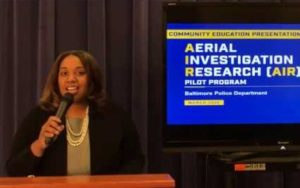
Aerial Investigation Research Pilot Program And Persistent Tracking
As the nation erupts in protests against racially-infused police violence, the Baltimore Police Department has just launched a six-month, day-time aerial surveillance experiment. A Texas billionaire has funded the project that is being operated by an Ohio-based company, Persistent Surveillance Systems. The plane flies overhead and records the movements of everyone in the city.
Michael Harrision, Baltimore Police Commissioner, has justified the nearly $4 million experiment by saying, “There is no expectation of privacy on a public street, a sidewalk.”
The Aerial Investigation Research Pilot Program is, by contract, limited to monitoring such felony crimes as robberies, car jackings, shootings and homicides. Images recorded are, in theory, to be used solely in criminal investigations and will be stored for 45 days. A first prong of the program was conducted covertly in 2016 under a different police commissioner.
The ACLU of Maryland calls this initiative the most comprehensive surveillance of a U.S. city in history. ACLU Senior Staff attorney David Rocah said, “It’s the virtual equivalent of having a police officer follow a resident every time they walk out the door, and if that happened in real life, all of us would understand the huge privacy implications in doing that.”
Guest – ACLU Senior Staff attorney David Rocah has worked on a number of significant cases involving free speech, police misconduct, privacy, election law and more. In 2011 he was an inaugural recipient of the James Baldwin Medal for Civil Rights. David previously worked as a Senior Trial attorney in the Civil Rights Division at the US Dept of Justice, focusing on police misconduct and conditions in prisons, jails and other state institutions.
—-


President Trump Withdraws From The Treaty On Open Skies – PART 2
The chance for nuclear war which would destroy human life on Earth has never been higher. Just last week President Donald Trump withdrew America from The Treaty On Open Skies. This treaty is an agreement between 34 nations that allows each country to fly over each other’s territories. The treaty is designed to provide transparency and mutual observation of military developments. He also withdrew from the Intermediary Intermediary Ballistic Missile treaty with Russia. As a consequence the Bulletin of Atomic Scientists has pushed the hands of its doomsday clock on its magazine forward to almost midnight
Shortly after taking office Trump pulled out of the Iran nuclear deal. Trump enjoys the financial and political backing of big business, the banks, the hedge funds, and the military industrial complex. These money interests profit greatly from the nuclear rearmament which is now going on. First under Obama and then Trump $1 trillion is planned to be spent over the next 30 years for a new generation of nuclear weapons, including low yield ones, which are likely to be used.
Whistleblowing truth teller Daniel Ellsberg has recently written the grimly important book The Doomsday Machine. He believes that so far, avoidance of a nuclear war has been miraculous and that the danger is as present today as it was during the Cold War. He thinks seeking profit in spite of the risk of nuclear winter is “institutional madness.“
Guest – Paul Jay is the editor of the blog the theanalysis.news. We will discuss with him the kind of movement that is needed to reverse the nuclear arms race as well as to bring about a democratic organization of the economy.
————————————————

————————————————
Civil Liberties, Human Rights, Surveillance, Truth to Power, Uncategorized
Podcast: Play in new window | Download
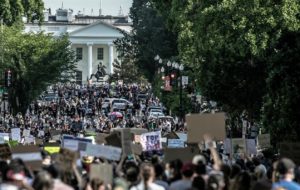
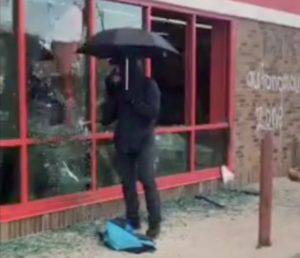
President Trump Invokes 1807 Insurrection Act
Last week Donald Trump announced his readiness to deploy the military to enforce order inside the United States. From the Rose Garden he vowed that if city and state leaders did not “take the actions that are necessary to defend the life and property of their residents” he would invoke the 1807 Insurrection act. The Act was renamed after Hurricane Katrina, but otherwise remains the same. It allows a president to deploy the military to suppress civil disorder.
In response, defense officials have expressed discomfort at the prospect of calling in active duty troops to police protected First Amendment activity. Many have emphasized the importance of having local law enforcement take charge. Some National Guard troops are also reportedly wary of this move, even as more are mobilized domestically than at any other time in history.
Army Major General Thomas Carden of the Georgia National Guard told reporters: “I believe that we in America should not get used to or accept uniformed service members of any variety having to be put in a position where they are having to secure people inside the United States of America.” He also said, “while we are glad to do it and honored to do it, this is a sign of the times that we need to do better as a country.”
During that Monday call with state governors, Trump intensified rhetoric about using military forces to “dominate” protesters. He wished there was an “occupying force” in cities across America and urged a tougher response to protests. Later that day, law enforcement officers fired tear gas and rubber bullets at a peaceful crowd outside the White House.
Guest – Mara Verheyden-Hilliard with the Partnership for Civil Justice Fund. Mara is one of the nation’s pre-eminent authorities on the policing of First Amendment protected activities including the right to peaceably assemble and associate.
—-


President Trump Withdraws From The Treaty On Open Skies
The chance for nuclear war which would destroy human life on Earth has never been higher. Just last week President Donald Trump withdrew America from The Treaty On Open Skies. This treaty is an agreement between 34 nations that allows each country to fly over each other’s territories. The treaty is designed to provide transparency and mutual observation of military developments. He also withdrew from the Intermediary Intermediary Ballistic Missile treaty with Russia. As a consequence the Bulletin of Atomic Scientists has pushed the hands of its doomsday clock on its magazine forward to almost midnight
Shortly after taking office Trump pulled out of the Iran nuclear deal. Trump enjoys the financial and political backing of big business, the banks, the hedge funds, and the military industrial complex. These money interests profit greatly from the nuclear rearmament which is now going on.
First under Obama and then Trump $1 trillion is planned to be spent over the next 30 years for a new generation of nuclear weapons, including low yield ones, which are likely to be used.
Whistleblowing truth teller Daniel Ellsberg has recently written the grimly important book The Doomsday Machine. He believes that so far, avoidance of a nuclear war has been miraculous and that the danger is as present today as it was during the Cold War. He thinks seeking profit in spite of the risk of nuclear winter is “institutional madness.“
Guest – Paul Jay is the editor of the blog the theanalysis.news. We will discuss with him the kind of movement that is needed to reverse the nuclear arms race as well as to bring about a democratic organization of the economy.
—————————————-

—————————————-
CIA Sponsored Terror, Civil Liberties, Criminalizing Dissent, Human Rights, Prison Industry, Supreme Court, Surveillance, Truth to Power
Podcast: Play in new window | Download

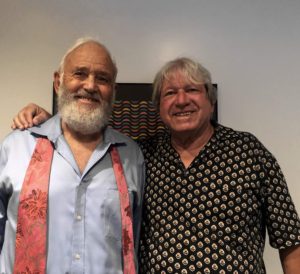
Update: U.S. Judge Sides With Chevron, Blocks $9.5 Billion Judgement
What the Chevron oil company is doing to environmental and human rights attorney Steven Donziger is a cautionary tale. Donziger has been under house arrest in New York City wearing an ankle bracelet for the last 10 months. He’s charged with contempt of court for refusing to turn over confidential material on his computer to Chevron’s lawyers. He. goes to trial in September where he is likely to be convicted by a hostile judge.
Donzinger bravely and skillfully succeeded in obtaining a 9 1/2 billion dollar judgment against Chevron. This oil giant company is the epitome of a ruling class institution with its origins in the Rockefeller family. Chevron bought Texaco, which had polluted an area the size of Rhode Island in the Ecuadorian Amazon region. The indigenous people there are plagued with cancer. Five tribes are affected. It’ll cost at least 9 billion to clean up the area. Chevron refuses to pay it and instead has spent over $2 billion in resisting the lawsuit and victimizing Donziger.
Top Federal Judge Louis A. Kaplan of New York‘s Southern District has presided over the case in America where Donziger is seeking to enforce the judgment.
Judge Kaplan has shown pronounced favoritism towards Chevron throughout the progress of the case. Kaplan made public comments about Chevron’s importance to the global economy, expressed skepticism about the Ecuadorian judgment due to what he called the “socialist government” of Raphael Correa, and held investments in multiple funds with Chevron holdings at the time of his rulings.
The Chevron case is the most important environmental and corporate responsibility case of our time.
DonzigerDefense.com
ChevronToxico.com
ChevronInEcuador.com
Guest – Attorney Martin Garbus, one of three pro bono lawyers representing Donziger in an attempt to get his law license restored. Garbus has a long and distinguished career as a civil rights and first amendment litigator.
—-
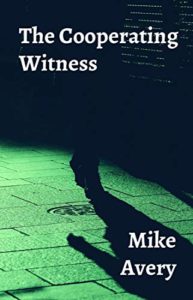
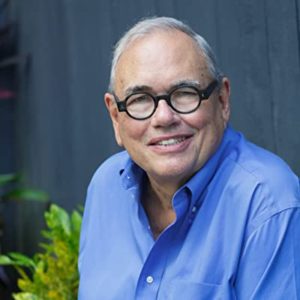
The Cooperating Witness: Attorney Michael Avery
As summer begins in the time of COVID-19, many people are returning to or discovering the age-old pleasure of reading. With that in mind, Law & Disorder is delighted to recommend our first thriller read. One of our longtime legal expert guests, civil rights attorney Mike Avery, has written The Cooperating Witness. While Mike has been writing for decades, this is his first nonfiction book. As prestigious as are his other titles—one on the Federalist Society, others on legal topics such as the laws of evidence in Massachusetts—The Cooperating Witness is sure to have far greater appeal to our listeners.
The book starts by introducing readers to Susan Sorella, a law student at Suffolk Law School where Mike used to teach. From the start we learn that Susan is no ordinary student. As she waits on tables at her father’s restaurant in Boston’s North End, the head of the local mob pays her a surprise visit. He is just one of several shady characters Susan will encounter on her quest to help a jaded defense attorney save an innocent man charged with killing the mob’s accountant.
Guest – Mike Avery is a civil rights lawyer. He’s has defended victims of police abuse and racial and sexual discrimination in the last four decades. He has served as the President of the National Lawyers Guild, and the National Police Accountability Project. He co-authored The Federalist Society: How Conservatives Took the Law Back from Liberals, which we have covered on Law and Disorder.
——————————————

——————————————
CIA Sponsored Terror, Civil Liberties, Criminalizing Dissent, Human Rights, Political Prisoner, Surveillance, Truth to Power
Podcast: Play in new window | Download
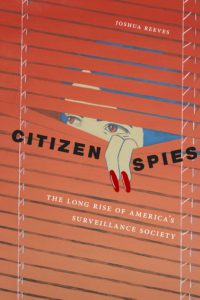
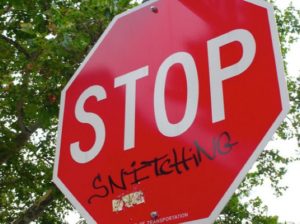
Citizen Spies: The Long Rise of America’s Surveillance Society
The U.S. Department of Homeland Security’s program “If You See Something, Say Something,” launched in 2010, urges citizens to be aware of and to report, potential threats. Examples of suspicious activity include unattended packages or baggage; circumstances that appear out of the ordinary, like an open door that is usually closed; a person asking for detailed information about a building’s layout or purpose, and changes in security protocol or shifts. Also of concern is any person seen loitering around a building, writing notes, sketches, and taking photographs or measurements.
The DHS website is careful to note that, “Factors such as race, ethnicity, and/or religious affiliation are not suspicious.” Yet as listeners know, incidents of ethnic profiling are many, including one in which a Southwest Airlines passenger was taken off a flight for speaking Arabic.
The history of citizen spying and reporting on others is not new in this country. And the “See Something” campaign isn’t the only civilian spying program around. Many jurisdictions have Neighborhood Watch programs. The U.S. Department of Justice’s National Neighborhood Watch initiative enlists community members to assist crime prevention and to prepare neighborhoods for disasters and emergency response.
Guest – Joshua Reeves author of Citizen Spies, The Long Rise of America’s Surveillance Society . He is associate professor of New Media Communications and Speech Communication at Oregon State University, where he’s also a fellow in their Center for the Humanities. An associate editor of the journal Surveillance and Society, he’s also written the just-released book, Killer Apps: War, Media, Machine.
—-

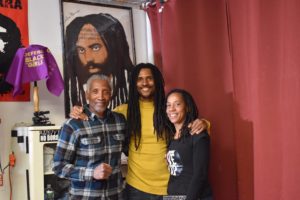
Former Philadelphia Mayor Calls For A Formal Apology To MOVE
The former Philadelphia mayor who led the city when police dropped a bomb on the MOVE house in 1985 has called for a formal apology from the city. The bomb and subsequent fire killed 11 people and destroyed more than 60 homes in the neighborhood. Five children were among the 11 who died.
Former mayor W. Wilson Goode Sr. said in an op-ed in the Guardian that “after 35 years it would be helpful for the healing of all involved, especially the victims of this terrible event.”
After dropping an explosive from a helicopter, the Philadelphia Fire Department let the fire burn, knowing there were men, women and children inside. Goode insists he knew nothing about police and fire department’s plan of action even though he was ultimately responsible for the actions.
Ramona Africa, one of the survivors, has described police opening fire on MOVE members trying to flee the burning home.
Janine Africa, who was one of nine MOVE members sentenced to between 30 and 100 years in prison and who served 41 years of that sentence in the 1978 shooting death of Officer James Ramp, maintains her innocence but said she and other MOVE members were judged on alleged actions of one day. MOVE members have said they believe that Ramp was shot by friendly fire.
Former Gov. Ed Rendell, who succeeded Goode as mayor and was the district attorney who prosecuted MOVE members, told The Philadelphia Inquirer that he now regrets his handling of the prosecution of some members. He said if he had to do it over again, he would have offered those who weren’t leaders plea deals that included less severe sentences.
“I followed the law, but the prosecutor always has the discretion to use their judgment,” Rendell said. “For what they did compared to what some other people do in Philadelphia, they served far too much time.”
Guest – Mike Africa Jr. Founder of Seeds of Wisdom, Musician, Instagram Account
—————–

—————–
Academic Freedom, Censorship, CIA Sponsored Terror, Civil Liberties, Criminalizing Dissent, Human Rights, Political Prisoner, Surveillance, Truth to Power, War Resister
Podcast: Play in new window | Download
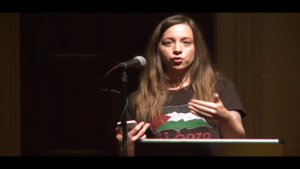

Library Freedom, TOR And Right To Privacy
Libraries in this country have long been sanctuaries in which to read, think, dream and pursue intellectual pursuits free from judgment or outside intrusion. But historically outside forces HAVE tried to intrude on this sanctitude. During the Cold War, for example, librarians exposed the FBI’s efforts to recruit library staff to spy on certain patrons, especially Russians, through the so-called Library Awareness Program. And after the attacks of September 11, 2001, the USA Patriot Act’s Section 215 has often been dubbed the “library provision” because it allows patron’s library records to be accessed and monitored by law enforcement agencies without a warrant.
In 2015 Law & Disorder reported on a New Hampshire Library that installed the Tor relay node to allow patrons to privately browse computers. Tor is anonymizing software that lets users conduct online searches without being monitored. Soon after, the Department of Homeland Security contacted local officials who visited the library, warning that Tor could aid criminal behavior.
Alison asks to please visit your local library website and facebook pages to increase their usage metrics which in turn help when applying for funding.
Guest – Alison Macrina was one of the people responsible for the New Hampshire library’s privacy tools. Alison is a librarian, privacy rights activist, and the founder and director of the Library Freedom Project, an initiative that helps educate librarians and their local communities about surveillance threats, privacy rights and law, and privacy-protecting technology tools to help safeguard digital freedoms.
—-
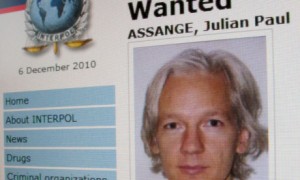
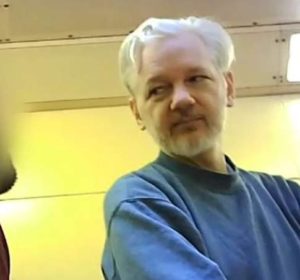
Julian Assange Extradition Update
Wikileaks founder Julian Assange’s extradition hearing began in January but is on hiatus at least until September 2020. At the January appearance, the prosecution pleaded for the media to stop characterizing the US effort as a politicized war on journalism. In response, Julian’s defense provided a comprehensive summary of the many reasons that journalists and human rights activists have called Julian’s indictment a threat to a free press.
James Lewis argued for the Crown Prosecution Service, which acts on behalf of the United States in its extradition request. Lewis explicitly asked journalists covering the case not to report that it represents a matter of free speech or the right to publish. Lewis depicted the indictment as solely a matter of exposing informants in the Iraq and Afghanistan war logs and the State Department cables.
Julian’s defense lawyer Edward Fitzgerald detailed how extradition proceedings constitute an abuse of process. He asserted that they have been brought for ulterior political purposes, as an attack on freedom of speech, and fundamentally misrepresent the facts in order to extradite Julian to the US, where he faces torture, unusual and degrading treatment.
Guest – NYC attorney Nathan Fuller, Executive Director of the Courage Foundation.
—————————————

—————————————
Censorship, CIA Sponsored Terror, Civil Liberties, Criminalizing Dissent, Human Rights, Surveillance, Truth to Power
Podcast: Play in new window | Download

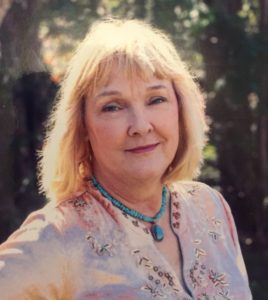
Nobody’s Child: A Tragedy, a Trial, and a History of the Insanity Defense
Public opinion surveys of knowledge, attitudes, and support for the insanity defense show that Americans dislike the insanity defense. They want insane law-breakers punished, and believe that insanity defense procedures don’t protect the public. Polls also show that most overestimate the use and success of the insanity plea.
In the book Nobody’s Child: A Tragedy, a Trial, and a History of the Insanity Defense, forensic psychologist and attorney Susan Vinocour tells the story of a three-year-old child found dead in his mentally-ill grandmother’s home. Vinocour agreed to evaluate the defendant. She explains how the legal terms”competency” don’t reflect psychiatric realities, and how, in criminal law, the insanity defense has to often been a luxury of the rich and white.
Nobody’s Child is an engaging portrait of injustice in the United States, and a complex examination of the troubling intersection of mental health and the law.
Guest – Susan Vinocour is a retired clinical and forensic psychologist, a former prosecutor and a former associate professor of psychiatry at the University of Rochester School of Medicine.
—-
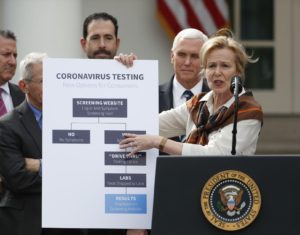
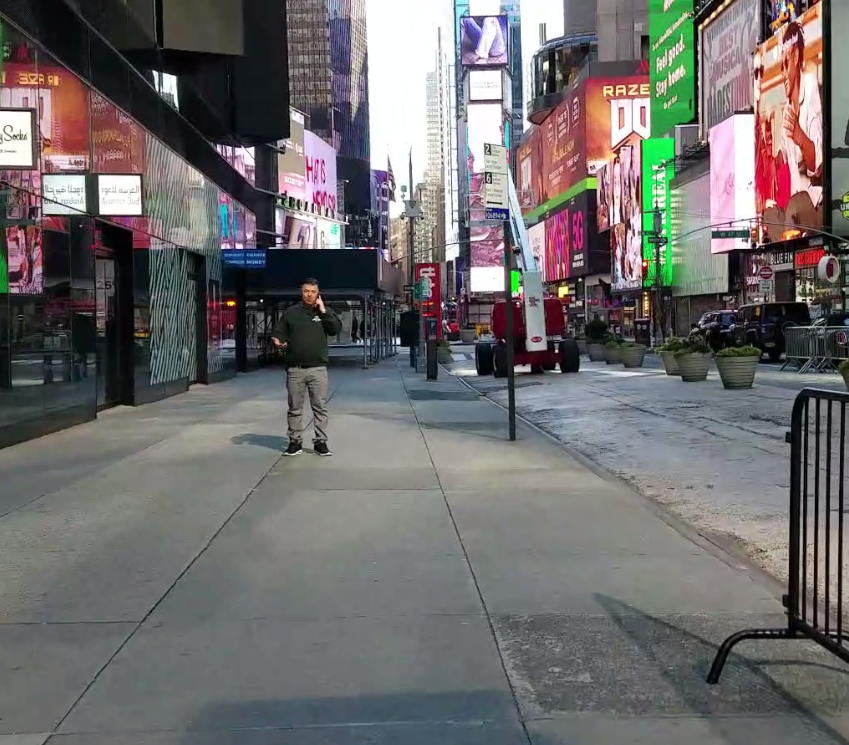
President Donald Trump And The White House Response To Pandemic
The place to start in understanding Trump and Trumpism is to accurately define what he represents. A disease cannot be countered unless it is correctly diagnosed.
Mainstream liberal commentators refuse to associate the Trump phenomena with fascism, calling him a right wing populist or a nationalist. But it really matters what Trump is called if we are to fashion a resistance to him with the possibility of triumph. Analysts on the left like Noam Chomsky , Chris Hedges, and Cornell West understand that he and the constellation of forces that make up his movement – principally big business and white non-college educated middle-class people – are fascists.
The poet, playwright, and political thinker Berthold Brecht was asked about German fascism in 1935: “How can anyone tell the truth about fascism, he replied, unless he is willing to speak out against capitalism, which brings it forth.”
It was the failure of a united socialist movement in Germany in the early 30s that allowed Hitler to gain power. We have seen with the Bernie Sanders phenomena the possibilities of building a socialist movement in the United States. This is our hope.
Guest – John Bellamy Foster, professor of sociology at the University of Oregon and the editor of the venerable independent socialist magazine “Monthly Review”. Professor Foster is the author of “Trump in the White House: Tragedy or Farce.“
————————————–

————————————–






















